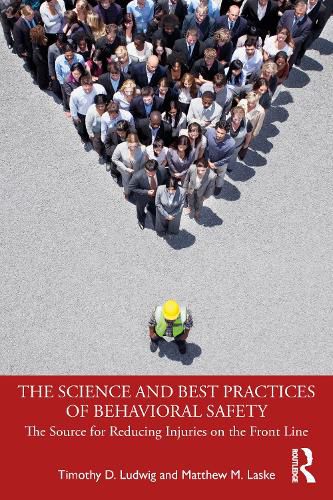Readings Newsletter
Become a Readings Member to make your shopping experience even easier.
Sign in or sign up for free!
You’re not far away from qualifying for FREE standard shipping within Australia
You’ve qualified for FREE standard shipping within Australia
The cart is loading…






This book presents the scientific principles and real-world best-practices of behavioral safety, one of the most mature and impactful applications of behavioral science to reduce injuries in industrial workplaces.
The authors review the core principles of behavioral science and their application to modern safety processes. Process components are discussed in detail, including risk analyses and pinpointing, direct observation, performance feedback, reinforcing engagement, trending and functional analyses, behavior change interventions, and program evaluation. Discussions are complemented by industry best-practice case studies from world-class behavioral safety programs accredited by the Cambridge Center for Behavioral Studies (CCBS) providing compelling evidence for injury reduction, which provide compelling evidence for the effectiveness of these behavioral science principles in reducing injury.
The Science and Best Practices of Behavioral Safety is essential reading for safety professionals, process safety engineers, and leaders in companies who have implemented behavioral safety, are considering it, or as an aid to learning more about the scientific background behind effective and practical safety practices. Researchers, expert consultants, and students who are already familiar with the practice will also find the book a valuable source to further develop their expertise.
$9.00 standard shipping within Australia
FREE standard shipping within Australia for orders over $100.00
Express & International shipping calculated at checkout
This book presents the scientific principles and real-world best-practices of behavioral safety, one of the most mature and impactful applications of behavioral science to reduce injuries in industrial workplaces.
The authors review the core principles of behavioral science and their application to modern safety processes. Process components are discussed in detail, including risk analyses and pinpointing, direct observation, performance feedback, reinforcing engagement, trending and functional analyses, behavior change interventions, and program evaluation. Discussions are complemented by industry best-practice case studies from world-class behavioral safety programs accredited by the Cambridge Center for Behavioral Studies (CCBS) providing compelling evidence for injury reduction, which provide compelling evidence for the effectiveness of these behavioral science principles in reducing injury.
The Science and Best Practices of Behavioral Safety is essential reading for safety professionals, process safety engineers, and leaders in companies who have implemented behavioral safety, are considering it, or as an aid to learning more about the scientific background behind effective and practical safety practices. Researchers, expert consultants, and students who are already familiar with the practice will also find the book a valuable source to further develop their expertise.